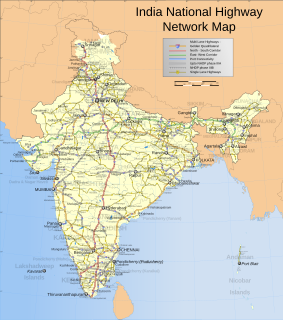A Spending Review or occasionally Comprehensive Spending Review is a governmental process in the United Kingdom carried out by HM Treasury to set firm expenditure limits and, through public service agreements, define the key improvements that the public can expect from these resources.

The United States federal budget comprises the spending and revenues of the U.S. federal government. The budget is the financial representation of the priorities of the government, reflecting historical debates and competing economic philosophies. The government primarily spends on healthcare, retirement, and defense programs. The non-partisan Congressional Budget Office provides extensive analysis of the budget and its economic effects. It has reported that the U.S. is facing a series of long-term financial challenges, as the population of the country ages and healthcare costs continue growing faster than the economy, leading to the debt held by the public exceeding GDP by 2030. The United States has the largest external debt in the world and the 14th largest government debt as % of GDP in the world.

India has a road network of over 5,903,293 kilometres (3,668,136 mi) as of 31 January 2019, the second largest road network in the world. At 1.70 km of roads per square kilometre of land, the quantitative density of India's road network is higher than that of Japan (0.91) and the United States (0.989888) to, and far higher than that of China (0.46), Brazil (0.18) or Russia (0.08). Adjusted for its large population, India has approximately 4.63 km of roads per 1000 people. However, qualitatively India's roads are a mix of modern highways and narrow, unpaved roads, and are being improved. As on 31 March 2016, 62.5% of Indian roads were paved.
A cost overrun, also known as a cost increase or budget overrun, involves unexpected incurred costs. When these costs in are in excess of budgeted amounts due to an underestimation of the actual cost during budgeting, they are known by these terms.
The Gershon Efficiency Review was a review of efficiency in the UK public sector conducted in 2003-4 by Sir Peter Gershon.
Energy Savings Performance Contracts (ESPCs), also known as Energy Performance Contracts, are an alternative financing mechanism authorized by the United States Congress designed to accelerate investment in cost effective energy conservation measures in existing Federal buildings. ESPCs allow Federal agencies to accomplish energy savings projects without up-front capital costs and without special Congressional appropriations. The Energy Policy Act of 1992 authorized Federal agencies to use private sector financing to implement energy conservation methods and energy efficiency technologies.

The American Recovery and Reinvestment Act of 2009 (ARRA), nicknamed the Recovery Act, was a stimulus package enacted by the 111th U.S. Congress and signed into law by President Barack Obama in February 2009. Developed in response to the Great Recession, the ARRA's primary objective was to save existing jobs and create new ones as soon as possible. Other objectives were to provide temporary relief programs for those most affected by the recession and invest in infrastructure, education, health, and renewable energy.

The Regina Bypass is a four-lane twinned highway connector road linking two National Highway System routes in Regina, Saskatchewan. Highway 1 and Highway 11 will be linked by this new route, forming a partial ring road around the city.

The 2009 Australian federal budget for the Australian financial year ended 30 June 2010 was presented on 12 May 2009 by the Treasurer of Australia, Wayne Swan, the second federal budget presented by Swan, and the second budget of the first Rudd Government. Swan commented that the budget would be tougher than in previous years. "Projected government revenue has fallen by $200 billion since the last budget because of the global economic crisis."
The Ministry of Road Transport and Highways is a ministry of the Government of India, that is the apex body for formulation and administration of the rules, regulations and laws relating to road transport, transport research and in also to increase the mobility and efficiency of the road transport system in India. Through its officers of Central Engineering Services (Roads) cadre it is responsible for the development of National Highways of the country. Road transport is a critical infrastructure for economic development of the country. It influences the pace, structure and pattern of development. In India, roads are used to transport over 60 percent of the total goods and 85 percent of the passenger traffic. Hence, development of this sector is of paramount importance for India and accounts for a significant part in the budget. Since May 2014, the Minister for Road Transport and Highways is Nitin Gadkari.

The Scottish Futures Trust (SFT) is a public corporation of the Scottish Government, established in September 2008 to improve public infrastructure investment. SFT operates at arm's length from the Government but works closely with the public and private sectors to deliver value-for-money on all public sector infrastructure investment across the country. The trust has the aim of saving £100–£150 million each year through a wide range of activities.
Sir Peter Oliver Gershon, is a British businessman and former civil servant, currently Chairman of Tate & Lyle, and since January 2012, Chairman of the FTSE 20 company National Grid. He is chiefly known for conducting the Gershon Review in 2004/2005 which recommended savings across the UK's public services and for being an adviser to the Conservative Party during the run up to the 2010 General Election. He has also been Chair of the Office of Government Commerce as well as sitting on the boards of several well known companies and organisations.

The 2011 Australian federal budget for the Australian financial year ended 30 June 2012 was presented on 10 May 2011 by the Treasurer of Australia, Wayne Swan, the fourth federal budget presented by Swan, and the first budget of the Gillard Government. The budget forecast a $22.6 billion deficit and delivered a $44.4 billion deficit.

The 2012 Australian federal budget for the Australian financial year ended 30 June 2013 was presented on 8 May 2012 by the Treasurer of Australia, Wayne Swan, the fifth federal budget presented by Swan, and the second budget of the Gillard Government. The budget was described as a "battlers" budget with benefits geared towards families and low income earners. It forecast a surplus of $1.5 billion in the financial year ended 30 June 2013.

Peter Hansford is an English civil engineer. He served as the 146th President of the Institution of Civil Engineers (ICE) (2010-2011) and succeeded Paul Morrell as the UK government's chief construction adviser in November 2012.
The Efficiency and Reform Group (ERG), established in 2010, was part of the Cabinet Office which worked in partnership with HM Treasury to form the corporate centre for UK Government. Its objectives were to reform the way government works and to support the transformation of government services by driving cost savings and focusing on growth.
The budget sequestration in 2013 refers to the automatic spending cuts to United States federal government spending in particular categories of outlays that were initially set to begin on January 1, 2013, as an austerity fiscal policy as a result of Budget Control Act of 2011 (BCA), and were postponed by two months by the American Taxpayer Relief Act of 2012 until March 1 when this law went into effect.

Northern Powerhouse Rail (NPR) previously called High Speed 3 (HS3) or Crossrail for the North is a proposed railway network in the North of England. It aims to improve transport connections between major northern English cities and transport hubs, including Liverpool, Manchester, Manchester Airport, Leeds, Bradford, Doncaster, Huddersfield, Sheffield, Newcastle, and Hull, as well as other significant economic centres. The exact route as yet has not been determined.
Transforming Infrastructure Performance is a British government report on the construction industry. Issued by the Infrastructure and Projects Authority in December 2017, its aim is to improve productivity in the sector and make savings of £15 billion per year. It proposes to do this by increasing innovations like off-site construction and new digital technology, improving government procurement procedures, and improving integration and collaboration. It is seen as a welcome initiative by the industry, and early implementation of its aims has been incorporated into the water industry's 2019 price review.









